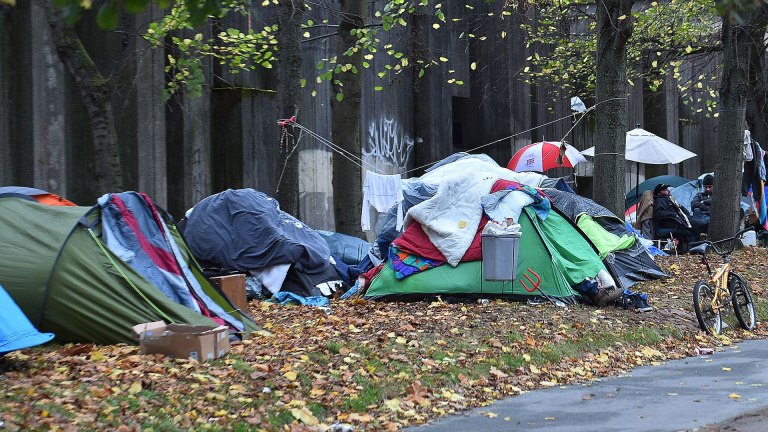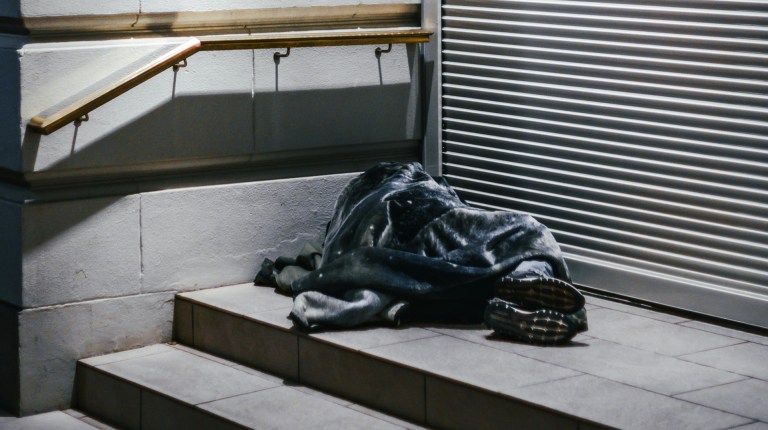Rebecca Moore, director of Action on Empty Homes, said: “Every year we see more homeless families and more homes standing empty, this is why a new government needs to make a change.
“We can’t keep on putting more families in unsuitable temporary accommodation for longer periods of time, whilst so many homes sit wasted. It’s particularly shocking to see big rises in London where so many homeless families originate.
“After more than a decade of intense housing crisis, people are asking how long-term empty homes in England can keep on rising, whilst 117,000 families and over 151,000 children are trapped in temporary accommodation, costing the nation £2bn pounds a year.”
A number of empty properties are needed in the housing market, indeed a shortage of affordable housing and difficulties in finding somewhere for people to live are driving up private rents and the cost of temporary accommodation for councils.
But too many empty houses mean that properties that could provide someone with a secure home are going to waste. Vacant homes also attract anti-social behaviour, while second homes that are left empty for large parts of the year can render some areas as ghost towns.
What can councils do about empty homes?
There have been efforts to curb the number of vacant houses in recent years. Local authorities have been given greater powers to charge a council tax premium to people who leave their homes unoccupied.
Advertising helps fund Big Issue’s mission to end poverty
Councils will be able to charge double the council tax rate on homes empty for 12 months, down from two years, as of April next year.
The government currently does not have a dedicated programme for vacant properties and that has been the case since 2016.
In the eight years since, the number of vacant properties has risen by 32%, according to Action on Empty Homes. Campaigners have urged ministers to put a fresh focus on filling dwellings.
Moore believes a new national programme to tackle vacant homes is long overdue. “What Action on Empty Homes, Crisis and Shelter are all calling for is a strategic and targeted approach to our national housing emergency to see homes brought into use to alleviate the worst impacts of homelessness fast,” she said. “Government needs to respond adequately and offer funding and incentives to get these homes back into use because this will save public money and transform the lives of homeless families.
“Long-term empties are a missed opportunity to invest in and learn from retrofitting. Retrofitting empties is cheaper, faster and greener than building new homes, creating energy efficient homes, and building local skills.
“Homeless families can’t wait 10 years and two terms of government to see new towns built, they need the housing they have been promised in their own communities now.”
Advertising helps fund Big Issue’s mission to end poverty
Adam Cliff, policy lead at Empty Homes Network, told the Big Issue that he would also like to see central government put a specific focus on filling empty homes.
The network aims to give local authorities the tools, experience and knowledge to assist officers to bring homes back into use.
The network believes even more homes are empty across England than Action on Empty Homes – around 1.125 million properties or 4.3% of the total number of dwellings across the country.
Cliff said 119,606 homes are being charged a council tax premium and have been unoccupied for more than two years. They would be enough to house the 117,450 households living in temporary accommodation.
The Empty Homes Network said empty and second home premiums should be restricted where councils do not have support and assistance provisions in place.
The group argue that local authorities are rewarded financially for properties being empty for longer and instead councils should be incentivised to work with owners to get homes back into use. This could be done by ringfencing empty and second home premiums.
Advertising helps fund Big Issue’s mission to end poverty
Meanwhile, central government should introduce a mechanism to reward councils for bringing unoccupied homes back into use as well as including a loan scheme to incentivise homeowners to work with local authorities.
“As an organisation, we know that the most successful approach involves supporting owners to overcome challenging and difficult circumstances, and therefore we would like to see all local authorities commit to an empty homes programme, and offer a dedicated resource to focus efforts on bringing empty homes back into use,” Cliff told the Big Issue.
Social enterprise Habitat for Humanity GB has been working in recent years on ways to renovate homes and has even created a downloadable toolkit to help others do the same.
Work has focused on commercial premises as well as residential.
Backed by two loans from Big Issue Invest, HFHGB has worked with local authorities in London to create flats for people with complex needs.
The group has recently proposed ‘empty spaces taskforces’ consisting of public sector partners, housing associations and community members to help rapidly bring homes into use.
Advertising helps fund Big Issue’s mission to end poverty
Henrietta Blackmore, director of Habitat for Humanity GB, said: “While the government is rightly bringing energy to its mission to solve the housing crisis, the latest data on council tax shows there remains plenty of fruit on the vine,” said Blackmore.
“More than half a million homes are empty, and second homes have increased 6.3% to 280,000. House building takes time, and has a serious impact on our environment. An active focus on making better use of our existing unoccupied homes, and other non-residential buildings that could make great homes, would deliver rapid results.”
A spokesperson for the Minstry of Housing, Communites and Local Governement said: “Councils have a range of tools at their disposal to bring empty homes back into use, including charging additional council tax on vacant properties and powers to take over the management of long-term empty homes.
“We are committed to delivering 1.5 million homes this parliament and the biggest increase in social and affordable homebuilding – investing £500 million for 5,000 new social homes and spending close to £1billion on reducing homelessness next financial year.”
Do you have a story to tell or opinions to share about this? Get in touch and tell us more. This Christmas, you can make a lasting change on a vendor’s life. Buy a magazine from your local vendor in the street every week. If you can’t reach them, buy a Vendor Support Kit.









